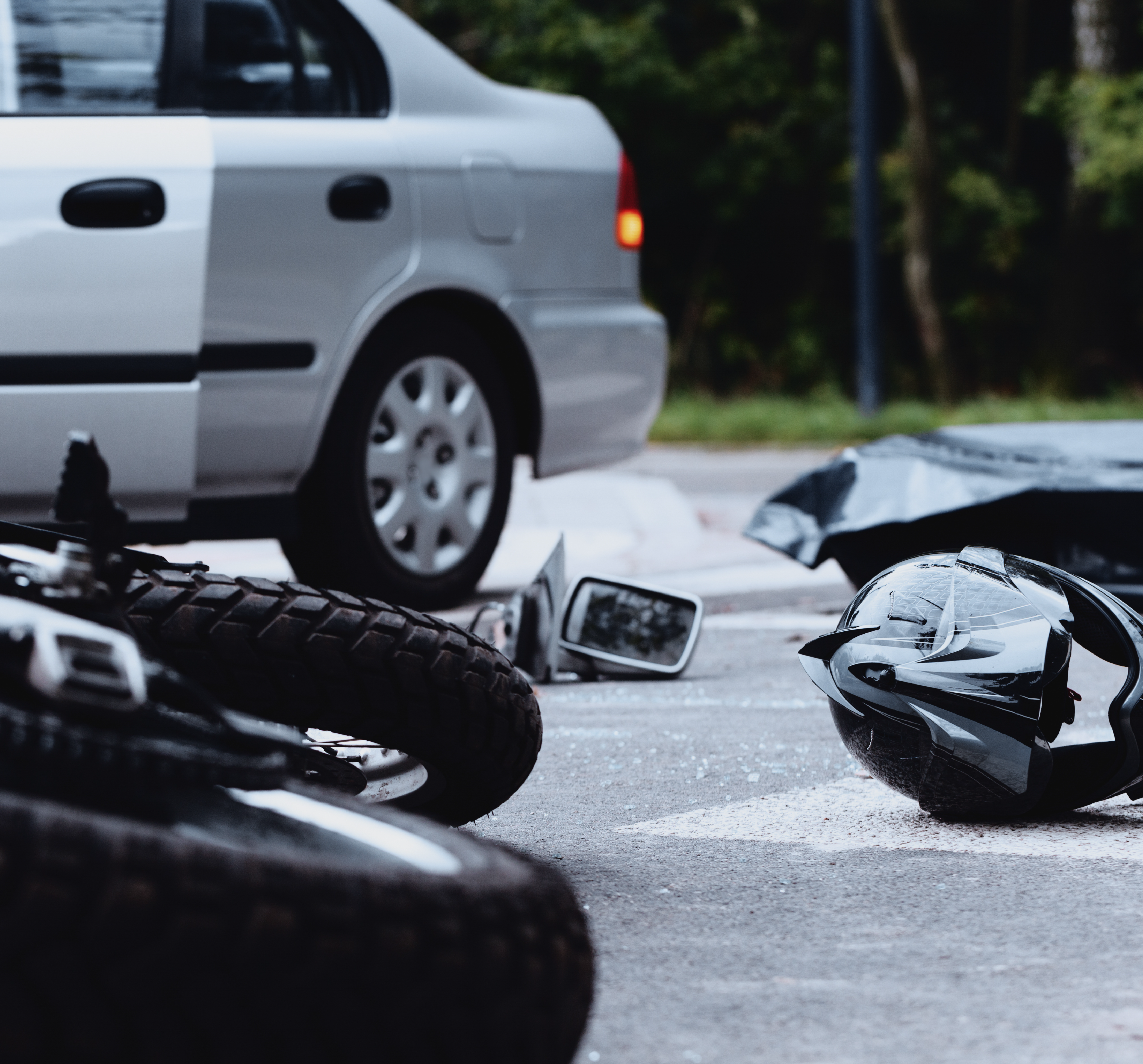GBB’s roadworthiness investigation into moped drop incidents set to combat “crash for cash” scams
28th March 2024

GBB, a Davies company of research and forensic investigations, has concluded a year-long investigation to understand what effect dropping a moped to the ground has on its roadworthiness and safety to help insurers determine repair costs and identify potentially dishonest claimants more easily.
The independent forensic investigation funded and carried out by GBB follows a rise in staged motorcycle accidents and “crash for cash” scams which have been driving up costs for insurers in the form of storage and hire charges. It is these increasing expenditures which have been partly to blame for driving up motor premiums.
The study, which was led by Director, Philip Hoyes and Head of Research, Mike Hall, involved conducting three different rollover tests on a Yamaha Nmax 125 motorcycle to analyse the damage caused. Each test resulted in minor damage to the motorcycle, however measurements confirmed that no critical damage in any of the three tests conducted would cause the bike to be declared unroadworthy.
The results of the study are set to be used to help insurers more clearly estimate repair costs and determine roadworthiness of small motorcycles or mopeds which have either been dropped or, in fraudulent cases, thrown to the ground. Potentially this will save insurers thousands of pounds in storage and hire costs which add up quickly while decisions are made on whether a bike can go back on the road, be repaired, or scrapped. With the scientifically backed evidence now able to be used to support investigations, it is also hoped it will now be much easier to identify potentially fraudulent claims at an earlier stage, preventing excessive motorcycle storage and hire charges.
As Philip Hoyes, Director at GBB, explains: “Incorrectly classifying bikes as unroadworthy means the cost of claims dramatically increases due to storage, hire, repair or replacement costs. Using the results of these tests will allow insurers to more accurately and quickly determine whether a bike is roadworthy or not, while also ensuring the safety of their customers.”
Commenting on the results, Martin Milliner, Claims Director, LV = General Insurance said: “Investigative and scientifically backed tests such as this one by GBB are a real benefit to insurers and the industry as a whole. We can use the results of the tests to help us to quickly determine claims cost and get our customers back on the road quicker and more safely. It’s also vital that we have as many tools to our belt as possible to stay one step ahead of fraud as we see a rise of fraudulent claims driving up our overall expenditure and ultimately the cost of premiums for everyone.”
Jon Radford, Head of Intelligence, Investigations & Data Services at the Insurance Fraud Bureau (IFB) adds: “Crash for cash moped scams are a serious problem as they cost insurers millions and put countless innocent road users at risk. It’s vital that the industry collaborates and shares its insights to help tackle this issue and we welcome GBB’s significant contribution to this field of research.”
Three rollover tests were performed in the investigation. In test 1 the bike was allowed to fall freely from a vertical position onto its nearside. In test 2 the bike was supported on its side-stand. A force was then applied to cause it to fall onto its offside. In test 3 the bike was supported on its side-stand. A large impulse was then applied to cause the bike to fall onto its offside. All tests were filmed to assess their relative severity and were monitored by an accelerometer fixed to the rider’s seat at a height of 0.79m. The report will be published in full in the Institute of Traffic Accident Investigators’ (ITAI) quarterly journal, “Impact”.
Related Articles
-
- Acquisition
- Legal Solutions
Davies adds international commercial and maritime litigation expertise to its legal solutions arm through the acquisition of Shoreside Law
26th March 2024, London: Davies, the leading specialist professional services and…
-
- Article
- Claims Solutions
Davies becomes accredited NHQB out-of-hours supplier as more developers adopt industry code of practice to protect consumers
LONDON, UK – 20 February 2024 – Davies, the leading specialist…
-
- Acquisition
- Claims Solutions
- Consulting
Davies announces acquisition of leading international forensic accounting firm, MDD
LONDON, UK – 13 February 2024 – Davies, the leading specialist…


